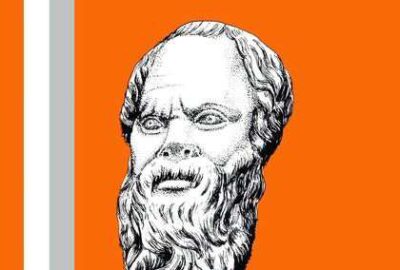Name
Instructor
Course
Date
Euthyphro by Plato
Euthyphro代写 Euthyphro by Plato:The text is a philosophical dialogue between Socrates and Euthyphro about what is piety and being pious.
The text is a philosophical dialogue between Socrates and Euthyphro about what is piety and being pious. Socrates was accused of acting impious (p. 2). Euthyphro, on the other hand, was accusing his father of murder (p. 3). To Athenian the act was impious but not Euthyphro (p. 5). The author is trying to teach us that socially justification of what is right thing/way to do or behave. It is true that what is instinctively accepted by humans as evil and right, it is also evil in the eyes of gods by divine command. What I like about this text is Euthyphro dilemma on what is pious.
About Euthyphro Euthyphro代写
Euthyphro is the work of Plato written in the form of a dialogue between his teacher, Socrates, and Euthyphro. Socrates and Euthyphro met out the course where Socrates was about to be charged with inciting the youths against the city’s gods and hence corrupting them with impiety. Euthyphro, on the other hand, is in the court prosecute his fathers for murder. His father tied the servant and threw him in a ditch after he learned the servant killed a slave (p. 4). But the servant died before Euthyphro’s father could sought for advice on what to do.
The whole dialogue brings out the concept of piety. Euthyphro代写

Socrates seeks to know the general definition of piety other than what Euthyphro gave that, according to him was very narrow to his application. Euthyphro gives five definitions, which all sounded inadequate to Socrates. According to Euthyphro, piety is doing what he was doing by prosecuting his father, just like any other wrongdoer (p. 6). Socrates objected the definition as just an example. The second definition he was that piety that is loved by gods but Socrates objected Euthyphro himself agree that sometimes gods disagree among themselves (p. 7). Thus, some things are loved while the same gods hate others.
Something cannot be pious and impious at the same time. Euthyphro continued to give third definition that piety is loved by all gods (p. 12). Socrates gave aa subtle but powerful objection to this definition. He posed a question to Euthyphro “Do the gods love piety because it is pious, or is it pious because the gods love it?” (p. 13). In the fourth definition, Euthyphro said that piety is justice when serving gods, but this did not please Socrates. The last description states that piety is doing what is right to gods in prayers and sacrifice, and this, too was objected by Socrates as inadequate.
Main Ethical Dilemma Euthyphro代写
The whole conversation between the two brought the notion of the Euthyphro dilemma on the definition and understanding of piety and acting pious. The beginning of the story was the end of it. Euthyphro was served his conscious by accusing his father of murder, something that is considered impious to Athenian. Socrates was accused of being impious and hence seek guidance from Euthyphro, who could not give a conclusive answer to his concerns. Although Socrates seems to get the better of Euthyphro, they could not agree on what is pious or impious. At the end of it all, Socrates, though may have done what was pious, was later executed.
What Socrates was Trying to Say Euthyphro代写
Socrates was trying to explain the charges leveled against him. According to him, there was no set of definitions of piety and as such no set of definitions of impiety. Therefore, the argument raised a question of how a person can be tried and executed for a crime that is not defined.
What can be Learned and Relevance of the Text Euthyphro代写
The conversation between the two reveals that we cannot link what is pious to the will of the divine, and hence charges determined solely based on divine are frivolous. The text is essential today in answering the question of morality and its application in the court of law. It means that what is sometimes impious requires more in-depth interrogation because it can turn to pious.

Work Cited
Plato. Euthyphro. Pp. 1-24.
更多其他:Admission Review代写 文学论文代写 Academic代写 Essay代写 Proposal代写 研究论文代写 Case study代写 艾莎代写 Report代写



